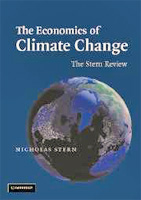
News |
- Peat Mine in Park Stopped, Lake Winnipeg Peninsula Peat Mines Go Ahead
- Reality Drop Launched by Climate Reality Project
- International Rivers Wins Prestigious Award
- Gene Whelan - A Great Canadian
- Hormone Disrupting Chemicals A Global Threat
- Tens of Thousands Rally For Climate Action
- Arctic Council Oil Spill Agreement Weak
- Port Authority Approves Coal Expansion
- Stern Says: It's Worse Than I Thought
- Aboriginal Rights Vote in Parliament Unanimous
- Bipole III Route Changes EIS Filed
- Mine Proposed in Grass River Park
| Peat Mine in Park Stopped, Lake Winnipeg Peninsula Peat Mines Go Ahead | 1 March 13 |

"We are extremely happy that the Manitoba government has recognized mining doesn't belong in a provincial park" said Eric Reder, Manitoba Campaign Director for the Wilderness Committee. "We believe that all provincial parks should be protected from the threat of industrial development, including logging and mining." Wilderness Committee also expressed concern that two other peat mines have been given the go ahead by the provincial government. The Wilderness Committee has argued that the peat industry does not drive much economic development, and yet it is responsible for carbon emissions, damage to water quality, destruction of habitat, and disruption of communities. In particular, this decision to allow these two mines contravenes the wishes of a local First Nations community. "Mitigation and off-sets are not the solution. We don't need peat as a product, we need peat as a natural storehouse of carbon. Clearly, it's time for the provincial government to do the right thing—end peat mining in the province of Manitoba," Reder said. View February 26, 2013 Wilderness Committee articleView February 25, 2013 Government of Manitoba news release View February 2013 International Institute for Sustainable Development report |
|
 Print version Print version |
Top |
| Reality Drop Launched by Climate Reality Project | 1 March 13 |

The new website and online game tracks climate change myth busting, and engagement of climate change deniers. The Climate Reality Project has introduced fun, competition and tracking to bust these climate myths and deal openly with climate change deniers. Colour coding is used to identify climate myths news coverage, and climate news coverage that is science based. Scores in the Reality Drop are based on re posts of news items, and steps on line to connect climate change with science. Reality Drop's mission is to reveal the denial and deception around climate change, spread the truth, and clear the way toward real solutions. The more reality you drop, the more doubt you destroy, and the more points and prestige you earn. View Reality Drop websiteView The Climate Reality Project website |
|
 Print version Print version |
Top |
| International Rivers Wins Prestigious Award | 1 March 13 |

"If we think of forests as the lungs of the planet, then rivers most surely are the arteries of the planet. These arteries are being clogged by destructive big dams. International Rivers has worked for over 25 years to support communities fighting these misguided projects and to propose better alternatives for meeting energy and water needs. The MacArthur Award will help us build the global movement for rivers and rights, and advance a just and sustainable approach to development," said Jason Rainey, Executive Director of International Rivers. "From New York to New Delhi, these extraordinary organizations are making a real difference in the lives of people and communities," said MacArthur President Robert Gallucci. Since 1985, International Rivers has been at the heart of the global struggle to protect rivers and the rights of communities that depend on them. The executive director of International Rivers participated in the Clean Environment Commission hearings regarding the Wuskwatim projects, bringing important new information to the hearings. View February 28, 2013 International Rivers articleView February 27, 2013 MacArthur Foundation article View March 1, 2013 SFGate article |
|
 Print version Print version |
Top |
| Gene Whelan - A Great Canadian | 22 February 13 |

Source: The Windsor Star
As Canada's agriculture minister Gene Whelan became a household name - even before the green Stetson became his trademark. Still today farmers, and municipal officials in Manitoba ask about Gene, and send their greetings. Women who worked for his department remark about his story telling ability, and how he was the best boss they ever had. Gene had a habit of telling a story during the elevator ride up to his office, including holding the elevator to finish telling his story of the morning. After his years as a Member of Parliament, and cabinet minister, he turned his attention to Russia, and became a consultant and advisor while Russia was changing its economy to include western agriculture models. An unlikely Senator, Gene agreed to sit in the Senate for a short period. There he cooperated with Manitoba Conservative Senators who were leading an early investigation into risks to Canada's boreal forest regions. In turn they assisted him in his efforts to keep BST out of milk in Canada. In 1997 Gene Whelan worried about what the Red River flood was going to do to Manitoba, and his niece's family. He routinely called to get flood forecasts and ask if the federal government had delivered yet. We thank him for his efforts on behalf of Manitoba during the flood. Many Canadians were touched by Gene Whelan's vision, dedication, and compassion. We will miss him. View February 20, 2013 Alberta Farmer articleView February 20, 2013 The Vancouver Sun article View February 20, 2013 The Windsor Star blog post Henderson: Eugene Whelan: Patriot with a passion View February 20, 2013 The Windsor Star blog post Star editorial: Eugene Whelan was one-of-a-kind politician View February 19, 2013 The Windsor Star blog post 'He's just a great Canadian. Definitely one of the best' View February 21, 2013 The Honourable Eugene Francis Whelan obituary View February 21, 2013 The Windsor Star article View February 25, 2013 Ralph Goodale blog post A fond farewell to the man in the green hat |
|
 Print version Print version |
Top |
| Hormone Disrupting Chemicals A Global Threat | 22 February 13 |

Evidence linking hormone-mimicking chemicals to human health problems has grown stronger over the past decade, becoming a "global threat" that should be addressed. Chemical exposures play a role in the deterioration of wildlife health, while understanding EDCs in global decline of populations or biodiversity is challenging.The best evidence that EDCs affect wildlife populations comes from long‐term monitoring. Exact causes and effects are extremely difficult to pinpoint due to wide gaps in knowledge. Bans and restrictions on the use of EDCs have been associated with the recovery of wildlife populations and a reduction in health problems. View World Health Organization report Endocrine Disrupting Chemicals 2012View February 20, 2013 Digital Journal article View February 20, 2013 Actual Organics article View February 19, 2013 World Health Organization news release View February 19, 2013 Environmental Health News article |
|
 Print version Print version |
Top |
| Tens of Thousands Rally For Climate Action | 22 February 13 |

"We have a very entrenched system that's going to really require us to work together for a vision of people, peace, and the planet," the Green Party's Jill Stein said in an interview. "We are here for the long haul." Protesters were bussed in from 30 states and Canadian provinces. Marchers held aloft banners proclaiming "Don't be fossil fools" and "It's time to cut carbon" during the rally. "Today was one of the best days of my life, because I saw the movement come together finally, big and diverse and gorgeous," 350.org President Bill McKibben tweeted after speaking at the rally. Wednesday prior to the rally, 48 prominent climate activists including actress Darryl Hannah, Bill McKibben, civil rights leader Julian Bond and environmental lawyer Robert F. Kennedy Jr. were arrested after they chained themselves to the section of the fence surrounding the White House. Watch February 22, 2013 Forward on Climate Rally videoView February 19, 2013 Common Dreams article View February 18, 2013 Grist article View February 17, 2013 Los Angeles Times article View February 17, 2013 Huffington Post article View February 17, 2013 The Nation article View February 17, 2013 The Guardian article View February 13, 2013 CTV News article |
|
 Print version Print version |
Top |
| Arctic Council Oil Spill Agreement Weak | 8 February 13 |

"We would like to see the agreement contain specific provisions for the oil companies who are doing the drilling to be held fully responsible in the case of an accident so that means full liability for operators. There is simply no response capacity in any of the Arctic states to deal with what could be the worst environmental disaster in history," said Christy Ferguson, the Arctic project leader for Greenpeace Canada. Environmentalists fear a catastrophe similar to Deep Water Horizon in the Arctic would cause far more damage, be harder to plug and - if the onset of winter ice prevented quick successful capping - could spew unabated under the Arctic pack until the following summer. The proposed pact imposes no actual requirements in terms of drilling safeguards, equipment, or capacities to deal with blowouts or oil spills. The 'agreement' may be adopted at the Council's meeting in Sweden during May. Canada assumes the chair of the Council this year. View February 6, 2013 Eye on the Arctic articleView February 5, 2013 CBC News article View February 4, 2013 The Globe and Mail article View February 4, 2013 Greenpeace article |
|
 Print version Print version |
Top |
| Port Authority Approves Coal Expansion | 8 February 13 |

Source: Straight.com
"Balancing the port's mandate to facilitate Canada's trade and taking into consideration technical and environmental information, as well as municipal, community and First Nations input, Port Metro Vancouver has made an informed decision to approve both Neptune project permits." Port Metro Vancouver stated regarding its decision. Leading climate scientists and researchers have signed a letter asking the Vancouver Fraser Port Authority to delay making any decisions on two proposals to sharply increase coal exports. The founder of 350.org, Bill Mc-Kibben; UBC professor emeritus Bill Rees; NASA Goddard Institute for Space Studies head James Hansen; and Intergovernmental Panel on Climate Change researchers Andrew Weaver and Mark Jaccard are among dozens of signatories requesting "explicit consideration of global climate change impacts" be a part of any decision-making process. "The public consultation process is seriously flawed and the port is failing to meet its mandate to 'operate with broad public support in the best interests of Canadians,'" said Voters Taking Action on Climate Change spokesperson Kevin Washbrook. "There does not seem to be any consideration given to the end use impacts [like] climate change of the proposed exports." View February 6, 2013 Vancouver Observer articleView January 25, 2013 Canada.com article View January 24, 2013 Vancouver Observer article View January 24, 2013 The Globe and Mail article View November 28, 2012 Straight.com article View November 26, 2012 The Tyee article View Wilderness Committee Halt the Expansion of Dirty Coal Exports! page |
|
 Print version Print version |
Top |
| Stern Says: It's Worse Than I Thought | 8 February 13 |

"Looking back, I underestimated the risks. The planet and the atmosphere seem to be absorbing less carbon than we expected, and emissions are rising pretty strongly. This is potentially so dangerous that we have to act strongly. Do we want to play Russian roulette with two bullets or one?" stated Stern. The Stern Review estimated a 75% chance that global temperatures would rise by between two and three degrees above the long-term average. Stern, who heads up the Grantham Research Institute on Climate Change and the Environment at the London School of Economics, says he now believes we are heading for four degrees of warming or more. A November 2012 World Bank report, Turn Down the Heat: Why a 4°C Warmer World Must be Avoided, warns that a world that is 4°C warmer would be marked by extreme heat-waves, declining global food stocks, loss of ecosystems and biodiversity, and life-threatening sea level rise. View January 30, 2013 Energy Collective coverageView January 28, 2013 Social Europe Journal article View January 27, Slate coverage View January 26, 2013 The Guardian Newspaper coverage View November 2012 World Bank report View October 30, 2006 Stern Review on the Economics of Climate Change View Serious Global Warming: The Stern Review on Manitoba Wildlands Source:
The Guardian
|
|
 Print version Print version |
Top |
| Aboriginal Rights Vote in Parliament Unanimous | 8 February 13 |

NDP MP, and Opposition critic for aboriginal affairs, Jean Crowder, tabled the motion on January 31, 2013. The motion stated: "That the House, recognizing the broad-based demand for action, call on the government to make the improvement of economic outcomes of First Nations, Inuit and Métis a central focus of Budget 2013, and to commit to action on treaty implementation and full and meaningful consultation on legislation that affects the rights of Aboriginal Canadians, as required by domestic and international law." The motion was debated in the House of Commons for several hours on January 31, 2013, and passed with all party support 5 February 2013. It arose from the NDP and Liberal party support for the declaration the executive of the Assembly of First Nations passed in late January that outlines expected actions by the government of Canada. The declaration was issued at a point when Idle No More events across Canada brought attention to the failure to consult on recent laws inside Bill C-45 which affect aboriginal rights, and environmental protection across Canada. "The Assembly of First Nations welcomes the focus and attention that Parliamentarians are showing ... as First Nations continue to seek fundamental and transformative change in our relationship with Canada and Canadians, to fulfill the Treaties and respect title and inherent rights as a basis for ensuring a better today and future for our children, our families and our economies. I urge the Government of Canada to provide tangible investments and movement on its commitments to First Nations in Budget 2013," said Assembly of First Nations National Chief Shawn Atleo. View February 7, 2013 Assembly of First Nations press releaseView February 5, 2013 MP Jean Crowder press release View February 5, 2013 House of Commons Debates View January 31, 2013 House of Commons Debates Sources:
Assembly of First Nations, Parliament of Canada
|
|
 Print version Print version |
Top |
| Bipole III Route Changes EIS Filed | 1 February 13 |

The review under the Environment Act is also open to the public. The primary respondents are likely to be participants in the Clean Environment Commission hearings regarding Bipole III. Those hearings were adjourned in late November so Manitoba Hydro could do the analysis and environmental studies needed to prepare the EIS for three route changes. Hearings are slated to resume early in March, 2013. As of Friday February 1, 2013 participants in the hearings have not received copies of the EIS. Having paper and external electronic copies of the EIS is essential for analysis, comparison to other materials, and activity in the hearing room. This also means affected in in participants are relieved of steps and cost to download and print materials. The December 2011 EIS Bipole III EIS was onerous and sometimes impossible to download. Manitoba Hydro made sure they provided copies, including to all affected communities. This is the first time participants can identify when Manitoba Hydro did not provide materials. The utility routinely provides paper filings and materials for those involved in Public Utilities Board hearings. |
|
 Print version Print version |
Top |
| Mine Proposed in Grass River Park | 1 February 13 |

"As is often the case with the Manitoba government, the construction on site is so far along as to render the public review under the Environment Act meaningless. Even without approval of this mine, the impact of this exploration will be visible in the forest for the next half century," Reder said. The project is situated near the edge of Reed Lake, in a crucial travel corridor for endangered woodland caribou. The surrounding forest has been protected from logging for decades in an effort to preserve caribou. In Tomorrow Now, Manitoba's recently released "green strategy," the province states that it is "reviewing mining in parks with the goal of developing a sustainable 'mining in parks' strategy." "Twenty years ago Manitoba stopped new mines in parks. Why are we going backwards?" asked Manitoba Wildlands Director Gaile Whelan Enns. "This mine is a slap in the face of all Manitobans who, like me, value protecting wilderness," said Eric Reder, Manitoba Campaign Director with the Wilderness Committee. View February 1, 2013 Wilderness Committee press releaseView Wilderness Committee Reed Mine Site Maps page View February 1, 2013 Winnipeg Free Press coverage View Manitoba Environmental Approval Branch, Online Public Registry file #5621.00 - Hudson Bay Mining and Smelting Co. Limited - Reed Mine View Manitoba Wildlands Map Grass River Provincial Park: Drill Holes and Mining View Manitoba Wildlands Manitoba Provincial Parks Map Gallery page View March 7, 2013 Indigenous Peoples Issues & Resources Source:
Wilderness Committee
|
|
 Print version Print version |
Top |


 RSS Feeds:
RSS Feeds: